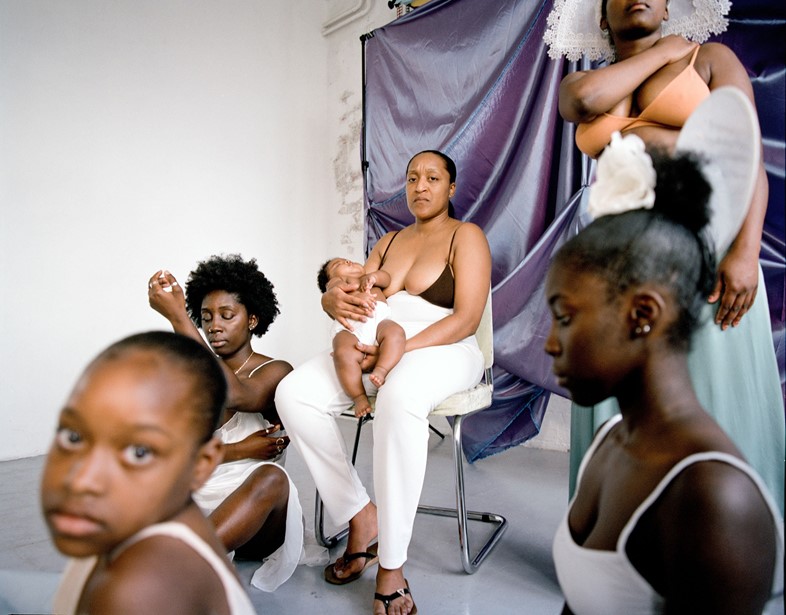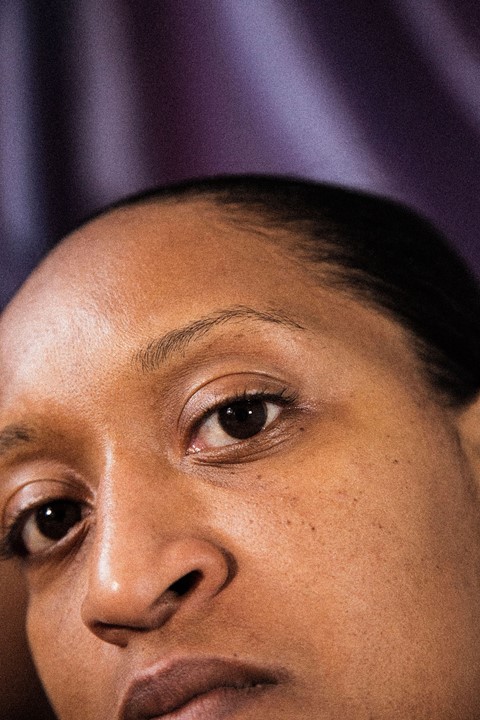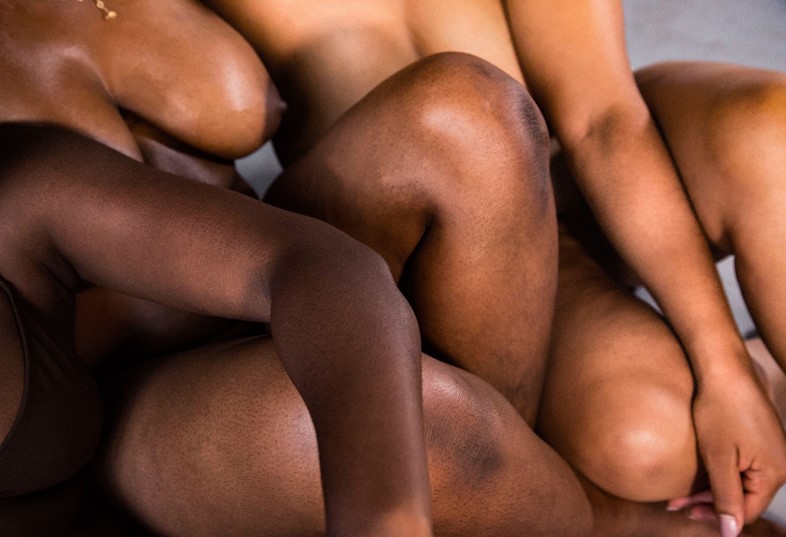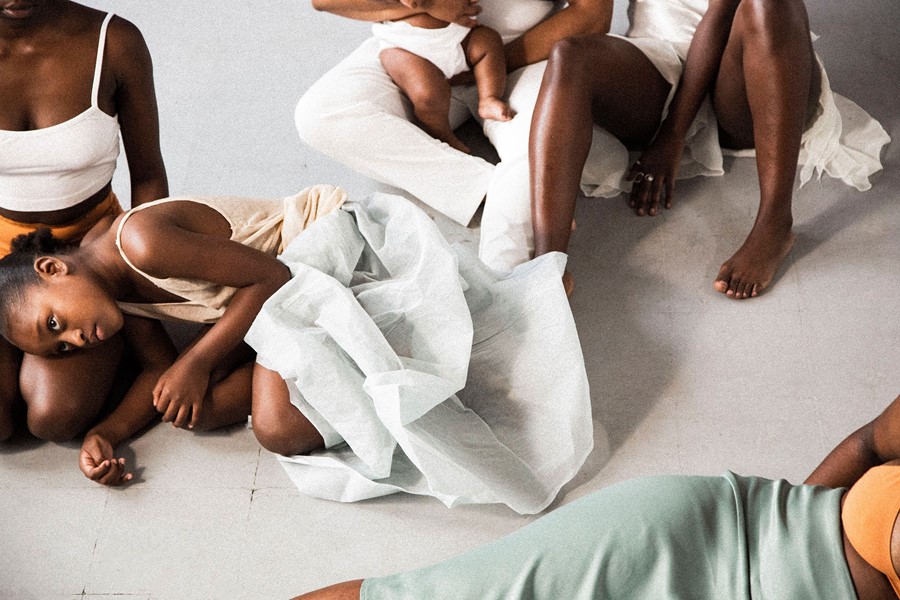To mark World Mental Health Day 2018, artist and designer Georgina Johnson shares some reflections on agency, with a capital A
Georgina Johnson is a London-based multidisciplinary artist and designer, and the founder of art collective The Laundry. Following their recent event, Slow Fashion to Save Minds, and ahead of both a collaboration with NOW Gallery, and a new exhibition, Nom, Johnson shares some personal reflections on the power of self-publishing, to mark World Mental Health Day 2018.
“If you haven’t yet tried it, I recommend you do. I first realised the sheer power of self-publishing after giving it a try with collaborator-turned-friend, Tyler Mitchell, in the early part of 2017. We self-published a zine together, and in turn told a story together about Black womanhood and the conception of the self. There is a great deal you can be taught in life, and a great deal you can fall into… if you’ll let yourself.
“Prior to this project, I couldn’t have imagined I had anything worth saying, or printing on paper – but on reflection, that is down to my having spent blips of my short herstory not loving myself, and not honouring the value in my voice. So when the residue of those periods rose to the top and challenged me, I realised even more what I had to say. My parents never taught me to be small – my grandmothers never even flirted with the idea. I definitely felt proud to be Black, but I struggled at times to take the splinter out of my own eye. There was this vibration inside me, something that wouldn’t let me be free to feel something else. So I wrote about that.

“‘I live my belonging through you,’ were the words inscribed on the opening pages of this collection of memory and rhyme. These six words hummed in my ears for years as I spoke to all the matriarchs, the mothers. The wimmin that showed me what love was, what their Black was, and how joy could surprise you in seasons of pain. These six words spoke to how I felt, speaking to elders in the diaspora.
“‘You’re not Jamaican, you’re English.’ A line that cut through the very heart of me on one occasion. Not only did my alliances lie with this distant island, but it was a place, though I’d never been, that I felt wrapped up in and partially severed from, all at the same time.
“Many know the tale – W.E.B Du Bois spoke on it in regard to the African American experience – but here I am, British, Black and an all-encompassing vision of it: this ‘Double-Consciousness’.

“I knew I was Black before I knew I was a woman – or a girl, at that time. I think my parents knew from the off that they had to instill this very secure consciousness inside of me, so they sent me to a Black-owned, Black-run and Black-centred Saturday School. I was at school every day of the week, if you count Sunday too. But it was imperative; imperative that they get me in as early as possible, before the main vein of education and proliferation of media jaded me.
“Freedom is a direct derivative of creativity; you could almost call them two peas in a pod. But how do you become free to create without the validity of louder or weightier voices? The answer for me laid upon the pages I braved producing.
“Zines have been symbols and vehicles of resistance for years, so this format feels like home for me, and for many of my peers. They are also the perfect way to take up physical space, and informally share yourself. In preparing to bring out a second zine this November, I plan on revisiting themes present in the aforementioned one last year – home, belonging and Black womanhood – but in addition, I will be talking about something I’ve been dealing with for years: depression.

“Dev Hynes said it best in a recent interview with Beat, when he remarked at how mental health and the conversation around it is becoming very trendy. He’s totally right; there shouldn’t be these ‘spikes in conversations as if the last conversation has been fixed’. I agree wholeheartedly. These things should be discussed in conjunction with one another, because they intersect, and our individual experiences are affected by a multitude of factors that we should revisit and try to resolve in some way. This conversation should be bigger and nuanced. I would say to that: brave the fear, if for no other reason than to let people know what mental health really does look like. I always try to live by, ‘if not me, then who?’, and I’d ask you the same. ‘If not you, then who is gonna dismantle this system?’ ‘If not you, then who is gonna speak up, so those coming up under you can be heard?’ If not you, then who?
“My final advice: self-publishing is like trying a new colour combination when getting your hair braided. You don’t really know what it will be like until you do it. You don’t know if you’ll like it, or if others will, but you take the chance and work for hours until you’ve produced something resembling what you had in your head. This first venture was most certainly a labour of love, but it was important to do, to try. It taught me to brave the uncertainty and set new bars. I’d like to encourage you to do the same.
“In a culture in which you can be made to feel small, as a woman, as a Black person, or someone on the fringes of society, self-publishing gives you power on your terms. It’s in no way easy, but when you create something honest, funny, critical, or something that just embodies you and the way you see, you open up yourself to others and allow folks to experience the world the way you do. In our climate of increasing intolerance, this is needed more than ever.”
NOW Later X The Laundry will take place November 8, 2018, at NOW Gallery, London
Nom runs from October 20 until November 4, 2018 at AMP Gallery, London.
